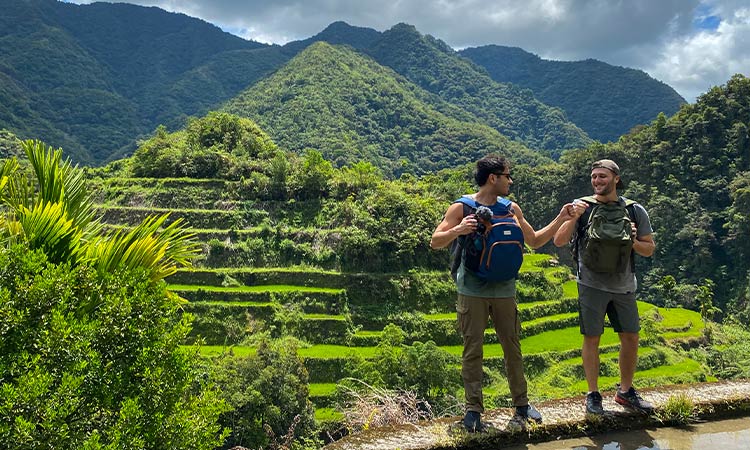
Are you thinking of visiting the beautiful rice terraces of Banaue in the north of the Philippines?
Well, let’s talk more about one of the most breathtaking sites of the country, what to expect, and what we loved on our short trip there. First, it is probably one of the most popular destinations among French tourists as we love nature and hiking.
Foreign travelers coming to the Philippines often start their trip with Banaue rice terraces in the north of Manila. And then, go down in the South to Palawan, Cebu or other places to relax at the beach for their mid / end of vacation. As said by our travel guide Ranzel (see the end of the article to have his contact details to find your local guide).
Also, if you follow us, our new vlogumentary (mix of vlog and documentary) is featuring this wonderful place along with Cambulo and Batad, the villages around, a must-visit for tourists who seek more than just beautiful beaches and want to dig deeper and connect with locals. Here is the link: Ep. 01 | Meeting a 72YO Rice Farmer in Banaue, Philippines.

Banaue is located in Ifugao province, in the northern central part of Luzon. Banaue is also located at a higher altitude compared to Metro Manila, and other nearby provinces. For that reason, the climate in the province is much cooler.
To put into perspective, Banaue is nearer to Baguio City compared to Metro Manila. If you find that the travel time from Manila to Baguio is already long, then add some more hours to it before reaching Banaue, Ifugao.
Now let’s talk a little bit about the Banaue Rice Terraces. It is one of the oldest rice terraces sites in the world. In the mountainous regions of Ifugao and northern Luzon Island, some rice terraces have been there for over 2,000 years. They’re made with stone and mud walls and use an authentic water irrigation system where the rice grows.
A fun fact is that if we put them side by side, they could reach more than 20 000 kms, which is half of the circumference of the world. You could count it like the distance *2 of Paris - Manila.
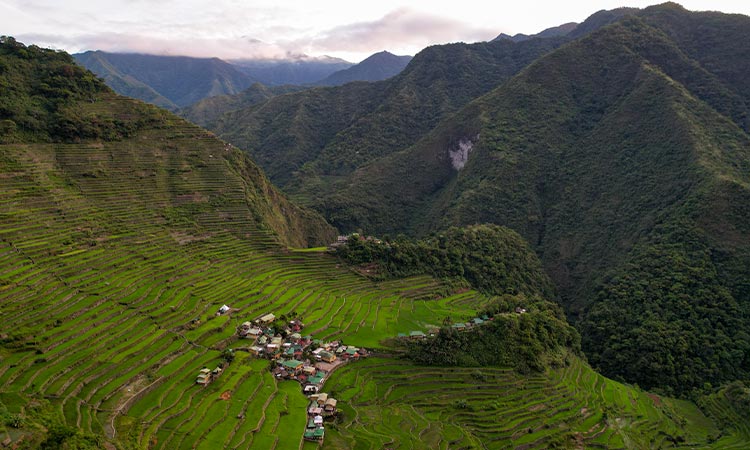
You can either opt to travel with a private vehicle where you can drive for a very long time, or you can take a bus ride where you can leave at night, relax, sleep and wake up arriving at your destination.
We took the Ohayami Trans bus. The cost of a one-way ticket going there is P650 and it is worth it, and hassle-free. We recommend you to book online prior to your departure to avoid any unexpected surprises. The trip is 10 hours long and to be honest, it is not the most comfortable trip, just think of being cramped up in a long haul flight. Don’t forget to bring jackets and wear comfortable pants as it is cold both inside the bus (you will thank us ;)) and sometimes upon arrival in Banaue.
Your trip to Banaue wouldn’t be complete without visiting the Banaue Rice Terraces, which is dubbed a UNESCO Heritage Site among other wonderful destinations around the globe.
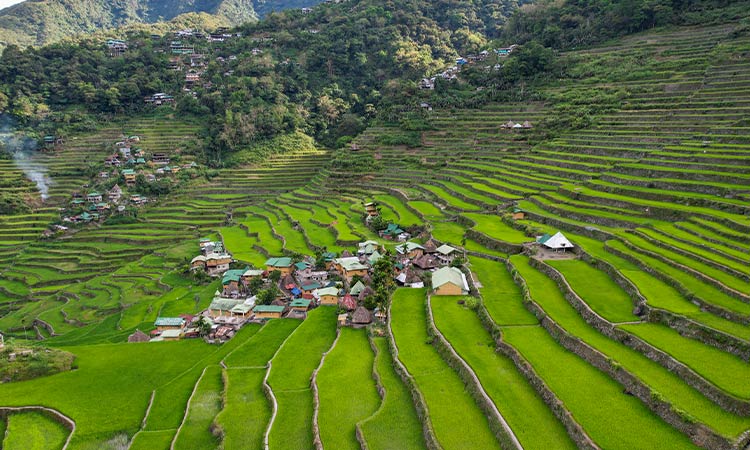
Another trivia about Banaue Rice Terraces. Did you know that the rice terraces comprise 6 rice terraces named Batad, Bangaan, Hapao, Hungdungan, Nungulunan, and Bacung. Of them all, Batad Rice Terraces is the largest. And it’s the one displayed in our vlog.
Since our docu-vlog wants to highlight an authentic experience in Banaue, we decided to join a farmer and showcase his daily routines as a farmer in the rice terraces. We joined him in the terraces to plant rice seedlings. We were lucky that we arrived during the time of sowing seedlings. It was indeed a unique experience that we won’t forget for sure! Planting seeds in the terraces, plus marveling at such a majestic view.
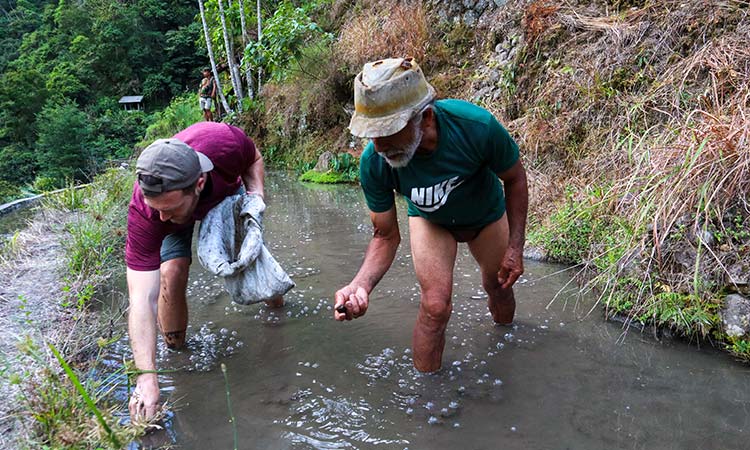
Did you guys know that the rice cultivated and harvested in the terraces is entirely for the food supply of the residents?
This is contrary to popular beliefs that some of the rice produced in Banaue are sold in Metro Manila. Their harvest is mainly for familial consumption. Each family can harvest rice for up to 6 months worth of supply.
Another trivia that we would like to share with you, the price of rice here in Banaue is way more expensive compared to Manila. The average price of rice per kilogram in Metro Manila is P42. Here in Banaue, it starts at P120. But you are assured that the rice you’re getting is certified organic, and was grown without any exposure to chemicals.
Watch our pilot episode here, to learn more about our one of a kind travel experience.
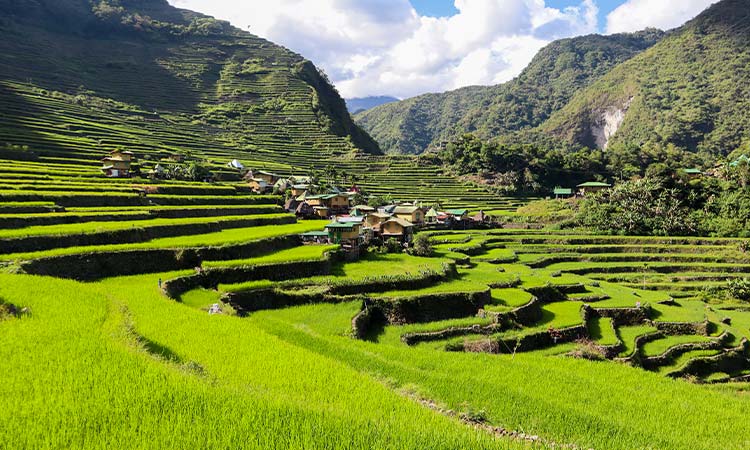
Visiting a place, and learning more about its culture is not complete without visiting a local museum. The Banaue Museum is located in the Banaue View Inn. Discover the history of Banaue by checking out their ancient books, old photographs, treasured jewelry, and tools, among other Igorot artifacts.
Tour the museum between the hours of 7 am to 4 pm every day.
If you love learning about different cultures like us, Tam-An Village is a must-visit for you! The village is located near the Banaue Hotel. It is also one of the top-visited places for people who seek to level up their excursions.
Learn how to live like an Igorot local in a village that is fully preserved with cultures and practices from the past. All while being surrounded by native houses and the majestic rice terraces. You can even try on traditional Ifugao clothing.
If you like adventure and beautiful landscapes you must go hiking in the rice fields of the region. The best way to get around an unfamiliar destination is by hiring a local guide who knows all of the corners of the place you’re visiting.
You can hire a local guide who will help you get around the place. We strongly advise getting one because, unlike other places where you can navigate your way when you get lost, it is quite hard for you to find your way back when you get lost while trekking. When you have a guide it is easier for you to immerse with the locals and you can avoid offending them because your guide can easily give you tips on what and what you shouldn’t do. And they can serve as a translator as several older people don’t speak English. Ifugao is their main language.
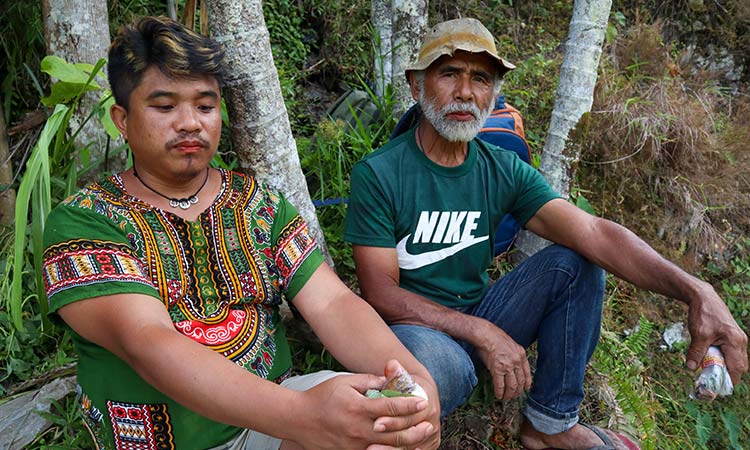
In our case, we did 3 days and 2 nights trekking and it is the right amount of time if you’ll ask us, you can stay for longer if you want. We stayed in Cambulo Village and visited the Batad Rice Terraces. While trekking, it is recommended to drop by Tappiya falls which is a hidden waterfall near the terraces. It is also recommended for people to be in good shape before trekking because the long activities are tiring if you’re not that active.
Depending on the package you’ll find, you will most likely be staying in local lodges for the night with simple but comfortable bedding and food.
If you are looking for a helpful guide, we recommend you Renzel, our local guide during our trip, you can contact him: Facebook , +639618141747.
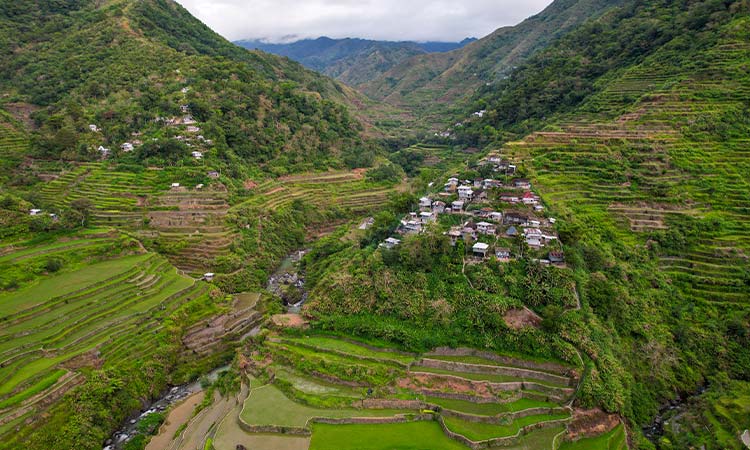
In Banaue
Just like any other tourist destination, you can find several accommodation choices available to you. From affordable cozy rooms that cost around P500 per night to a more comfortable accommodation that costs P3,000 per night. You can surely find one that fits your budget and lifestyle.
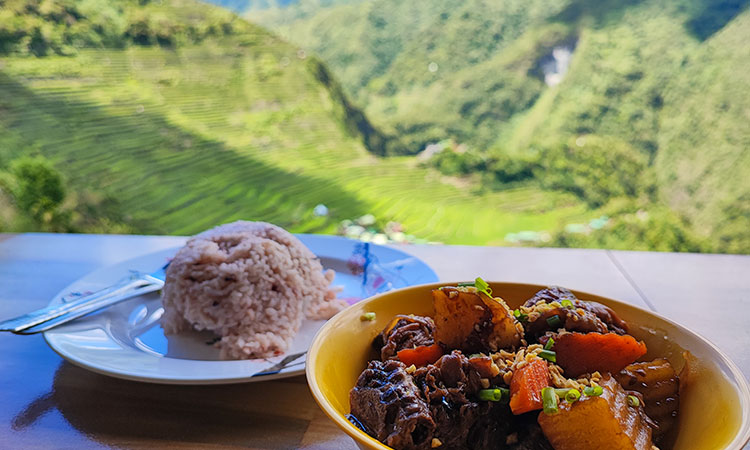
We slept in 2 lodges. Both were very simple but comfortable with good food. It is called Hillside Batad in Batad and Cambulo guest house in Cambulo which costs P500 per night. Keep in mind to allocate a budget for drinking water which costs P70 per bottle. It is more expensive due to its location and everything has to be carried by hand. You should also note that the place has poor signal and thus poor internet connection.
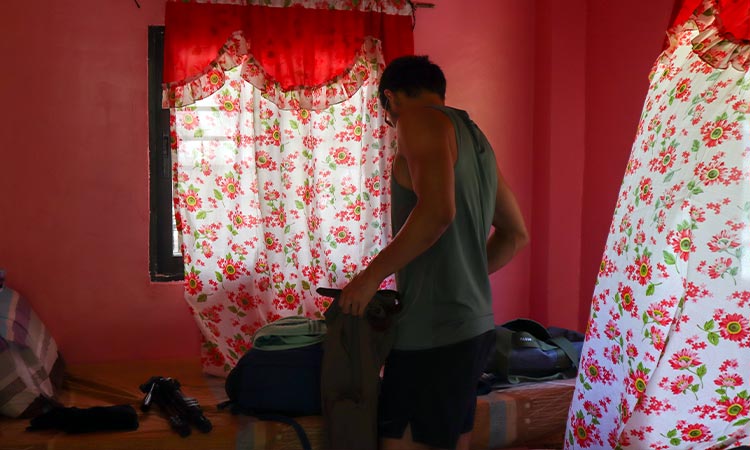
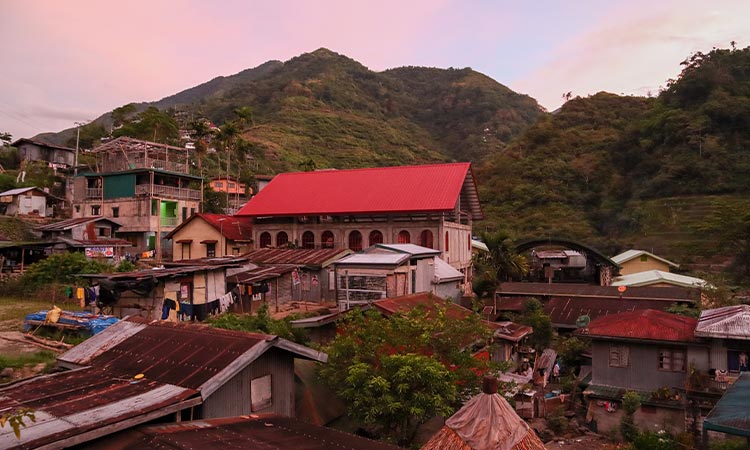
Yes you read it right! We’re not lying when we say that we rode on top of a jeepney! There were several people who rode the vehicle, we think around 30 people. We were wondering how we all fit inside the jeep? We were surprised that we could sit on the jeepney’s roof! It was a thrilling experience, and a little bit scary especially for people who are not used to that kind of arrangement.
The road is a bit bumpy, some parts were not concrete. We literally saw how steep the cliff was on one side, and partly eroded parts of the mountain on the other. We really do hope that as tourism grows in the province, concrete roads, and safer transportation shall be made available to the locals. They might be used to their traveling routines, but it is always best for everyone to have a safer option when traveling.
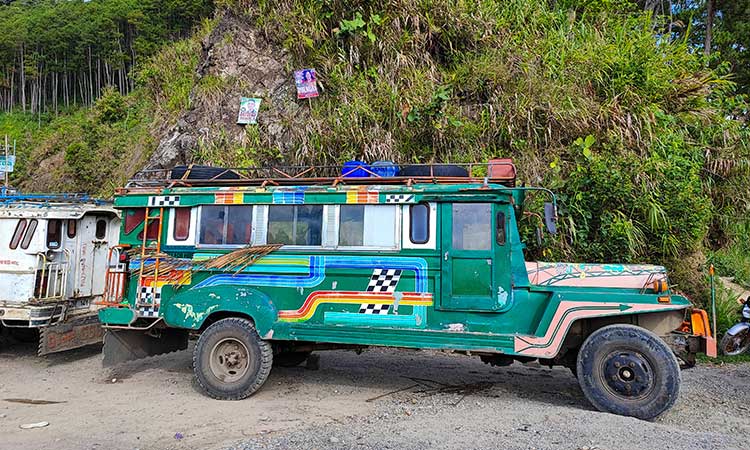
If you want to witness the terraces in their greenest, April-May or October-November is the best time for you to visit Banaue Rice Terraces. But if you prefer to see the terraces ripe for harvesting, you can enjoy its golden hue during the months of June and December.
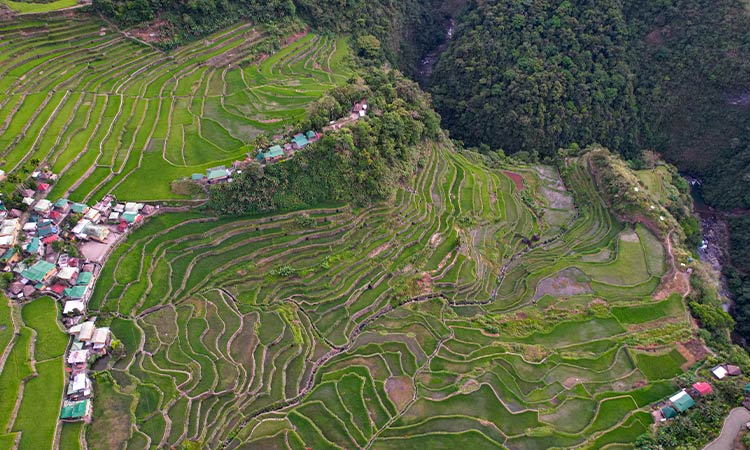
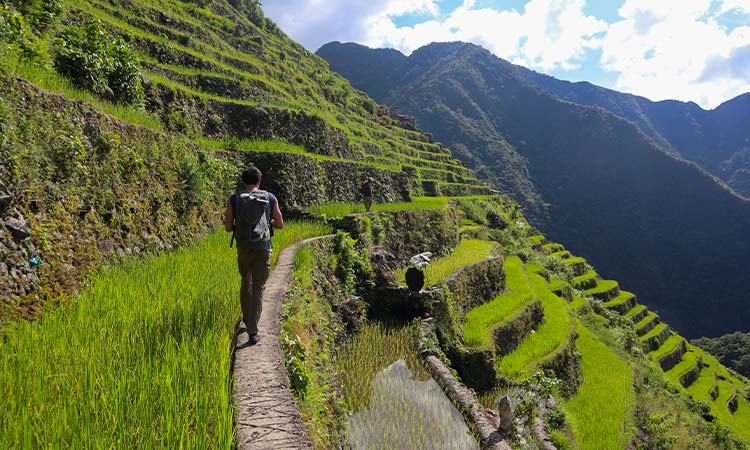
Our Banaue experience is surely different from the usual beach trip that we commonly do. But doing this trip made us feel more connected with the Filipino people even more. We felt that our bond and fondness for the Philippines grows more and more with every trip that we make.
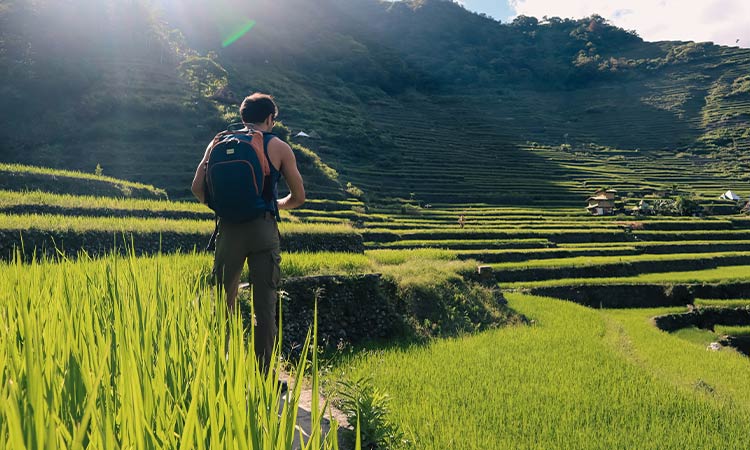
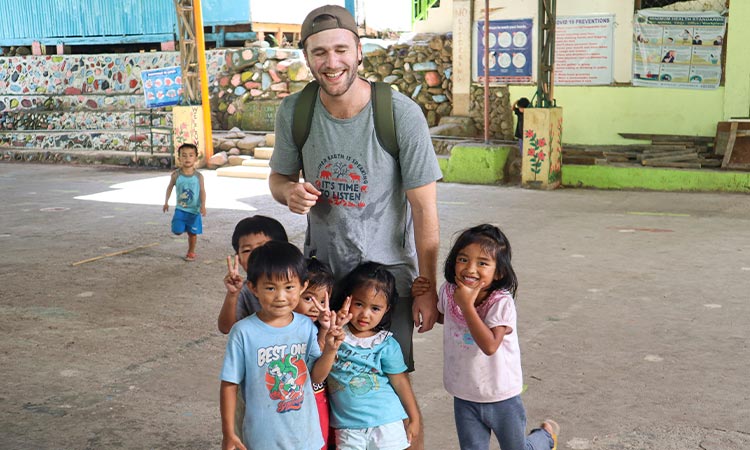
You may show your support by following us on all our social media pages, sharing our content, and of course, subscribing to our YouTube channel: EP 1 - MEETING A 72YO RICE FARMER IN BANAUE, PHILIPPINES
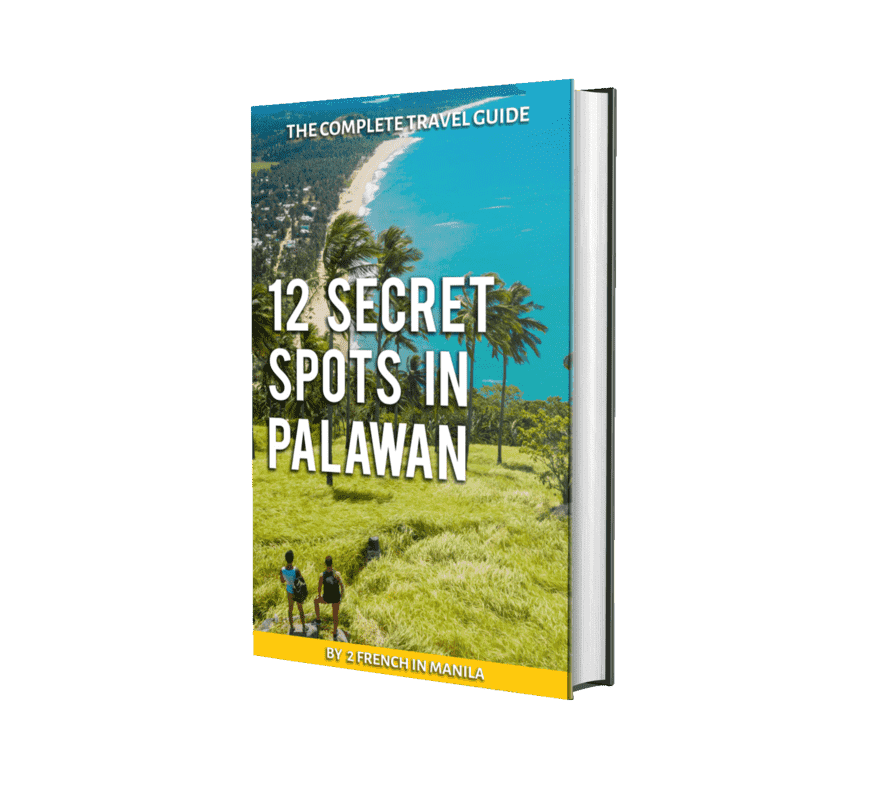
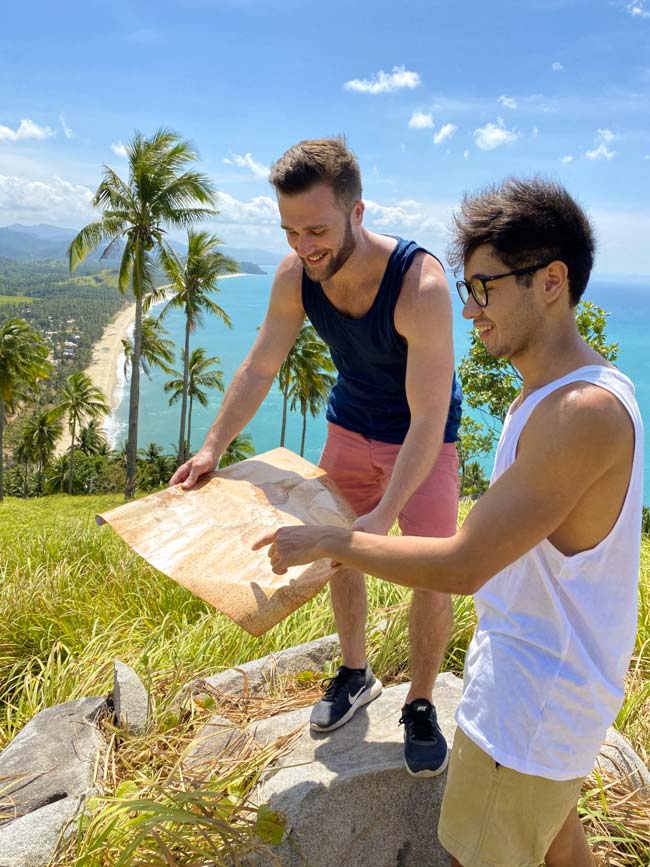
Get our recommendations, tips, and exclusive content before anyone else in your email box.